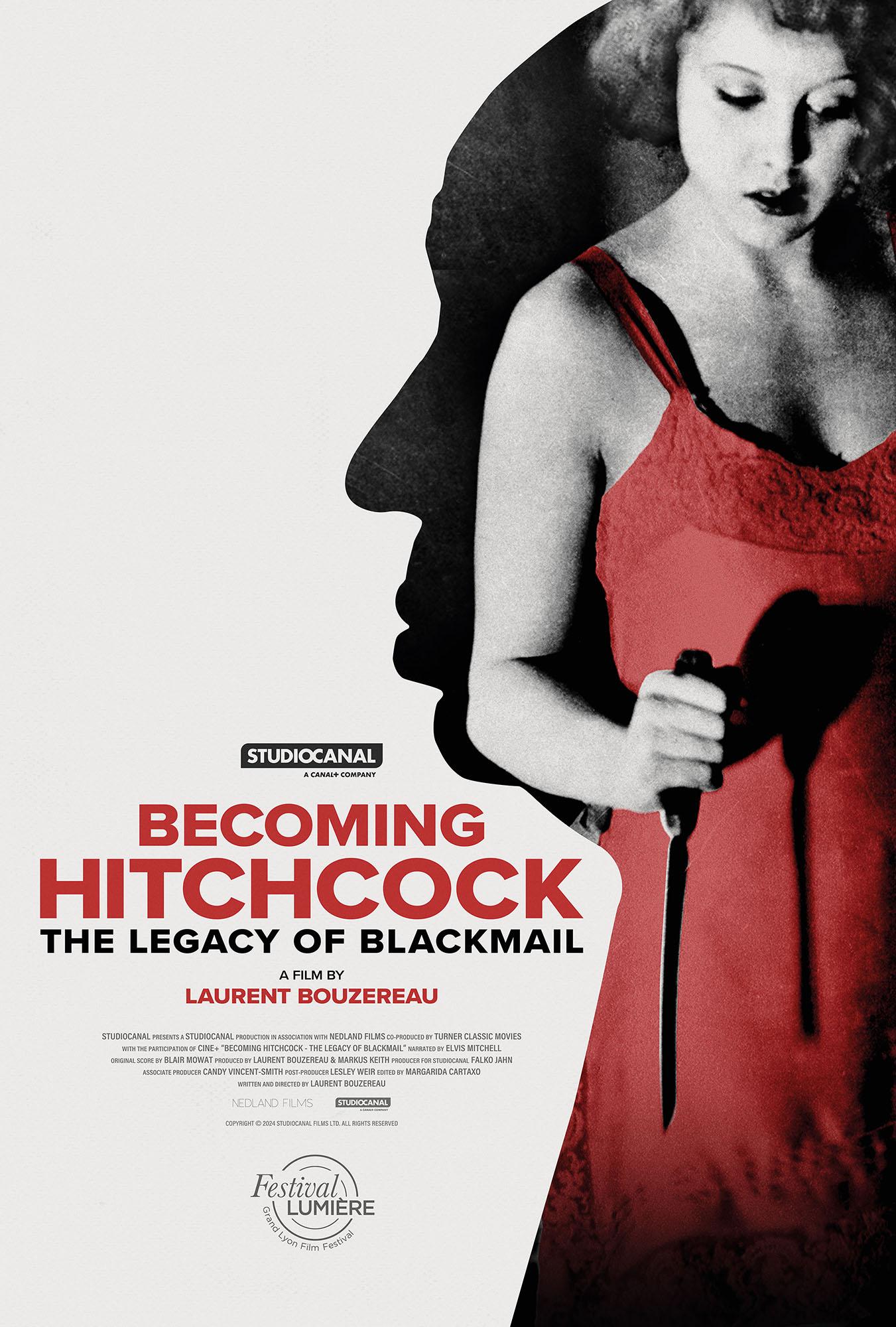Becoming Hitchcock
European powerhouse Studiocanal has dropped a first clip and poster of its new doc “Becoming Hitchcock – The Legacy of Blackmail” by L.A.-based filmmaker Laurent Bouzereau (“Faye”, “Five Came Back,” “Music by John Williams”). The doc feature will have its world premiere at the Lumière classic film festival in France’s Lyon on Oct. 18.
Based entirely on archive material, the film explores the famous Hitchcock touch, through the making of one of his benchmark films, “Blackmail,” released in 1929 at the dawn of the Talkies. Often referred to as the first British sound feature film, the film also exists in a silent version. Several sequences were reshot for the sound version.
By comparing the two, Bouzereau creates a novel way of exploring Hitchcock’s trademark themes such as murder, suspense, food and sexuality, providing a taste of what was to come in masterpieces like “Psycho,” “North by Northwest” and “The Birds” 30 years later.
“I wanted to mention the historical backdrop of what was happening in the industry but also really recognise Hitchcock as an auteur, very much like you look at painters and you recognise Picasso’s Blue Period, for example. Filmmakers of the caliber of Hitchcock are the same: they latch onto themes that interest them and, throughout their careers, they go back to these themes with different visual approaches,” he tells Variety.
As an example, the director cites what he calls Hitchcock’s “obsession with food,” describing a scene in “Blackmail” where Alice, the main character, a beautiful blonde – he was obsessed early on with them – kills an assailant with a bread knife that she grabs by his bed.
“The knife is on a table right by his bed with a loaf of bread, which is very intentional – how many people have a loaf of bread by their bed?” Bouzereau says with a smile. “That theme of food, particularly linked to seduction or sex and murder, is echoed throughout Hitchcock’s body of work.
“I find that fascinating, because it’s done in a way that’s so relatable – one thing we all have in common is that we must eat – so you’re immediately in. It’s twisted and mischievous but very clever and oftentimes very visual,” adds Bouzereau, who says it’s important to remember that Hitchcock started making films in the silent era, which explains why he relied heavily on visuals to tell a story.
“Even prior to “Blackmail,” he was very economical with intertitles,” he explains. “So when sound appeared he used it to his benefit,” he says, describing a famous scene shown in the documentary, which compares the silent and sound versions.
In it, which takes place the day after the murder, Alice is having breakfast with her family when a neighbor turns up and starts talking about a murder that has happened. When her father asks her to cut a slice of bread, she becomes increasingly agitated, until she finally drops the knife.
In the sound version, the neighbor’s chatter becomes garbled except for the word “knife” which emerges louder and louder, exacerbating Alice’s troubled state, until the young woman drops her knife. In the silent version, the viewer sees the shadow of Alice’s hand crawl across the bread as she picks up the knife, to unsettling effect.
The documentary also notes how Hitchcock faced a unique challenge with his lead actress, Anny Ondra, when filming the sound version of “Blackmail” because of her thick Czech accent which was ill-suited for her role.
Since post-production dubbing was not technically feasible at the time, Hitchcock had to enlist a actress, Joan Barry, to provide Ondra’s dialogue in real time on set. While Ondra performed her scenes, Barry stood off-camera, delivering the lines in sync with the action, marking an inventive solution in the early days of sound cinema.
“Becoming Hitchcock” is the first in a new line of documentaries produced by Studiocanal to highlight the variety of their catalogue. The studio is also releasing a Blu-ray box set to mark Hitchcock’s 125th birthday, featuring ten titles including “Blackmail,” “Murder,” “The Skin Game” and “Champagne,” which will be out in the U.K. and Germany in December. The documentary will air on Ciné + in France in January and on Warner Bros’ Max, also in early 2025.
Bouzereau’s upcoming documentary, “Music by John Williams” which explores the iconic film composer’s contributions to some of Hollywood biggest movies, will have its world premiere as the opening film of the AFI Fest on Oct. 23. The director is currently wrapping up work on a feature documentary on the “Jaws” phenomenon ahead of the film’s 50th anniversary in 2025.
The Lumière Film Festival runs in Lyon over Oct.12-20.

